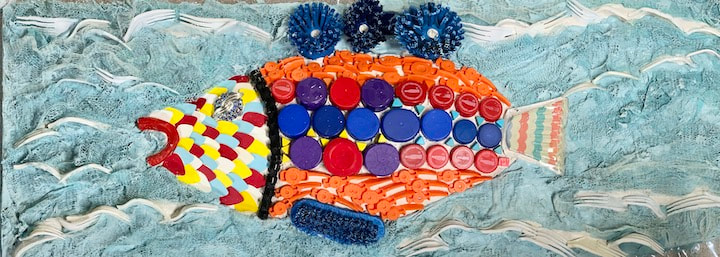|
Scientific Name: Epinephelus plasticus
Common name: Bottlecap Grouper The only species of grouper (slow-swimming, medium-to-large fish with stout bodies and large mouths) whose population is documented to be expanding rather than decreasing, Epinephelus plasticus is considered invasive in many of the world’s oceans. A moderately large fish, usually achieving 2-4 feet in length, the Bottlecap Grouper is also is relatively extremely lightweight and bouyant; it can often be spotted floating on the surface of the water. Colorful, variegated markings, usually striped, characterize the fish. Whereas the majority of grouper species are declining in numbers, and some (e.g., Epinephelus striatus or Nassau grouper)* is threatened throughout its range, the Bottlecap Grouper subsists entirely on plastic waste, and thus has a virtually infinite supply of food. Because its population is extremely large, expanding and taking over habitat needed to support other species, and it has no known predators, it is considered an invasive species. It also exhibits an entirely unique method of reproduction*, spontaneously assembling into new individuals in waters containing large amounts of plastic detritus (e.g., the Great Pacific Garbage Patch. Epinephelus plasticus is abundant worldwide. *Prior to this discovery, the concept of "spontaneous generation" had been thoroughly debunked by science and thought to be impossible. Comments are closed.
|
AuthorSusan Altman: Mosaicist, Community Artist, Writer/Editor Archives
February 2022
Categories |
Email: GlassAndGrout@gmail.com

 RSS Feed
RSS Feed